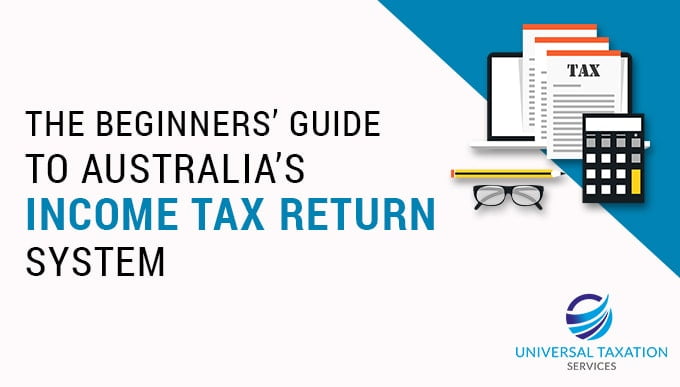Everything You Need to Know About Tax Deductions Available in Australia
Everything You Need to Know About Tax Deductions Available in Australia
Blog Article
Making Uses Of a Tax Return: Unlocking Possible Cost Savings and Guaranteeing a Larger Tax Reimbursement
The income tax return functions as an important instrument for people looking for to optimize their financial results, offering many methods for potential cost savings and enhanced reimbursements. By leveraging reductions and credit scores, taxpayers can strategically decrease their gross income and boost their total monetary standing. Nevertheless, the intricacies of tax obligation guidelines and the ever-evolving landscape of tax law require a thorough understanding of available choices. What are the crucial approaches that can be used to assure that taxpayers profit from these advantages? The answer may reveal more than simply financial gains.
Understanding Tax Obligation Deductions
Several taxpayers might find themselves bewildered by the complexities of tax obligation deductions, yet understanding these important components is crucial for maximizing possible savings. Tax obligation reductions decrease gross income, thus reducing the overall tax obligation obligation for companies and people. Familiarizing oneself with the numerous kinds of deductions available can substantially enhance one's capability to maximize tax obligation returns.
Reductions can be categorized into itemized and standard reductions. The typical deduction supplies a set decrease in taxed revenue, while itemized deductions permit taxpayers to identify particular costs, such as home mortgage interest, state taxes, and charitable contributions. Taxpayers must examine which choice produces the best benefit, as selecting the suitable reduction approach can result in significant financial savings.
Taxpayers must also remain educated about changes in tax legislations that may influence qualified reductions, as these can differ each year. By successfully going across the landscape of tax obligation reductions, people can disclose the capacity for a more beneficial tax obligation outcome and protected greater economic advantages.
Exploring Tax Credit Histories
Tax obligation credits stand for another remarkable opportunity for taxpayers to lower their general tax obligation, matching the benefits gained from deductions. Unlike deductions, which reduced gross income, tax credit scores supply a dollar-for-dollar reduction of the actual tax owed. This difference makes tax debts specifically valuable for individuals looking for to maximize their cost savings.
There are two primary sorts of tax obligation debts: nonrefundable and refundable. Nonrefundable credit histories can decrease your tax liability to no however not listed below that quantity, while refundable credit scores can lead to a reimbursement if the credit ratings go beyond the tax owed. Instances of generally declared tax credit histories consist of the Earned Revenue Tax Credit Rating (EITC), the Kid Tax Credit history, and education-related credit reports like the American Possibility Credit Score.
Eligibility needs for these credits can vary considerably, usually based on earnings, filing standing, and certain circumstances. Taxpayers need to completely review the requirements related to each credit report to determine they claim all benefits for which they certify. By strategically utilizing offered tax obligation credit reports, people can improve their tax obligation returns, inevitably resulting in considerable financial savings and possibly larger refunds.

Spending Your Reimbursement Intelligently
Obtaining a Tax refund can seem like a monetary windfall, however exactly how that cash is utilized can exceptionally Tax return impact long-term economic health and wellness. As opposed to seeing your reimbursement as non reusable income, consider it a possibility to invest in your future.


One efficient choice is contributing to a Private Retired Life Account (INDIVIDUAL RETIREMENT ACCOUNT) This can boost your retirement financial savings while possibly yielding tax benefits. Additionally, buying a varied supply profile can provide substantial development potential in time, enabling your refund to help you in the marketplace.
Additionally, think about using your reimbursement to pay for high-interest financial debt, such as bank card equilibriums. Decreasing financial debt can boost your economic standing and soothe stress and anxiety, eventually permitting you to allocate even more funds towards financial investments in the future.
For those concentrated on education and learning, utilizing your refund for a 529 university financial savings strategy can assist protect a brighter future for yourself or your kids.
Planning for Future Expenses
Very carefully preparing for future costs is necessary for keeping economic stability and accomplishing lasting objectives. A well-structured monetary plan allows people to allot sources properly, making certain that upcoming expenses do not disrupt their economic wellness. Income tax return can provide a beneficial structure for this planning procedure.
Utilizing the refund as a springboard, people can determine and focus on considerable future expenses, such as home fixings, education and learning costs, or health care needs. Developing a budget plan that incorporates these prepared for expenditures enables a proactive strategy, lessening the possibility of financial pressure when the time involves address them.
Furthermore, alloting funds from your tax reimbursement into devoted savings accounts can improve the performance of your planning. Australian Tax return online. Take into consideration developing a reserve especially for unforeseen expenditures, guaranteeing that you are prepared for unanticipated scenarios without hindering your monetary objectives
Common Blunders to Stay Clear Of
Numerous people make essential mistakes when managing their tax obligation returns that can undermine their financial preparation initiatives. One common error is falling short to maintain exact documents. Poor paperwork can lead to missed reductions, causing a lower refund or greater tax obligation. It is necessary to preserve arranged documents of all revenue, expenditures, and tax-related papers throughout the year.
An additional constant error is ignoring to examine tax legislation adjustments. Tax obligation policies can advance annually, and ignorance of these changes may cause missed out on possibilities for tax obligation credit reports or reductions. Furthermore, numerous taxpayers ignore eligible reductions, such as those for medical expenses or educational costs.
Filing taxes too late or too very early can also be detrimental. Early filers might lose out on last-minute tax obligation breaks, while late filers run the risk of fines and rate of interest.
Furthermore, not looking for expert assistance when essential can result in pricey errors. Tax obligation experts can provide useful understandings, making sure compliance and optimizing potential cost savings.
Last but not least, rushing with the return can bring about basic math mistakes or neglected kinds. Putting in the time to double-check all entrances is essential for a successful tax obligation return outcome.
Final Thought
To sum up, the strategic usage of tax obligation returns serves as a vital system for maximizing financial benefits. By extensively understanding and using reductions and credit histories, people can significantly minimize taxed revenue and boost reimbursement amounts. Additionally, prudent investment of refunds and efficient preparation for future expenditures add to lasting economic security. Recognition of common mistakes can also improve the tax process, eventually equipping taxpayers to take advantage of their returns for a more protected monetary future.
Tax credits stand for an additional noteworthy avenue for taxpayers to lower their general tax liability, enhancing the benefits gained from reductions. Unlike deductions, which lower taxed earnings, tax debts give a dollar-for-dollar decrease of the actual tax obligation owed. Nonrefundable credit reports can reduce your tax obligation to no yet not below that quantity, while refundable credits can result in a reimbursement if the credits surpass the tax obligation owed. Instances of frequently claimed tax credit ratings consist of the Earned Income Tax Credit Scores (EITC), the Youngster Tax Credit report, and education-related credit scores like the American Chance Credit Scores.
Tax obligation laws can develop every year, and ignorance of these adjustments might result in missed chances for tax obligation credits or deductions. - Australian Tax return online
Report this page